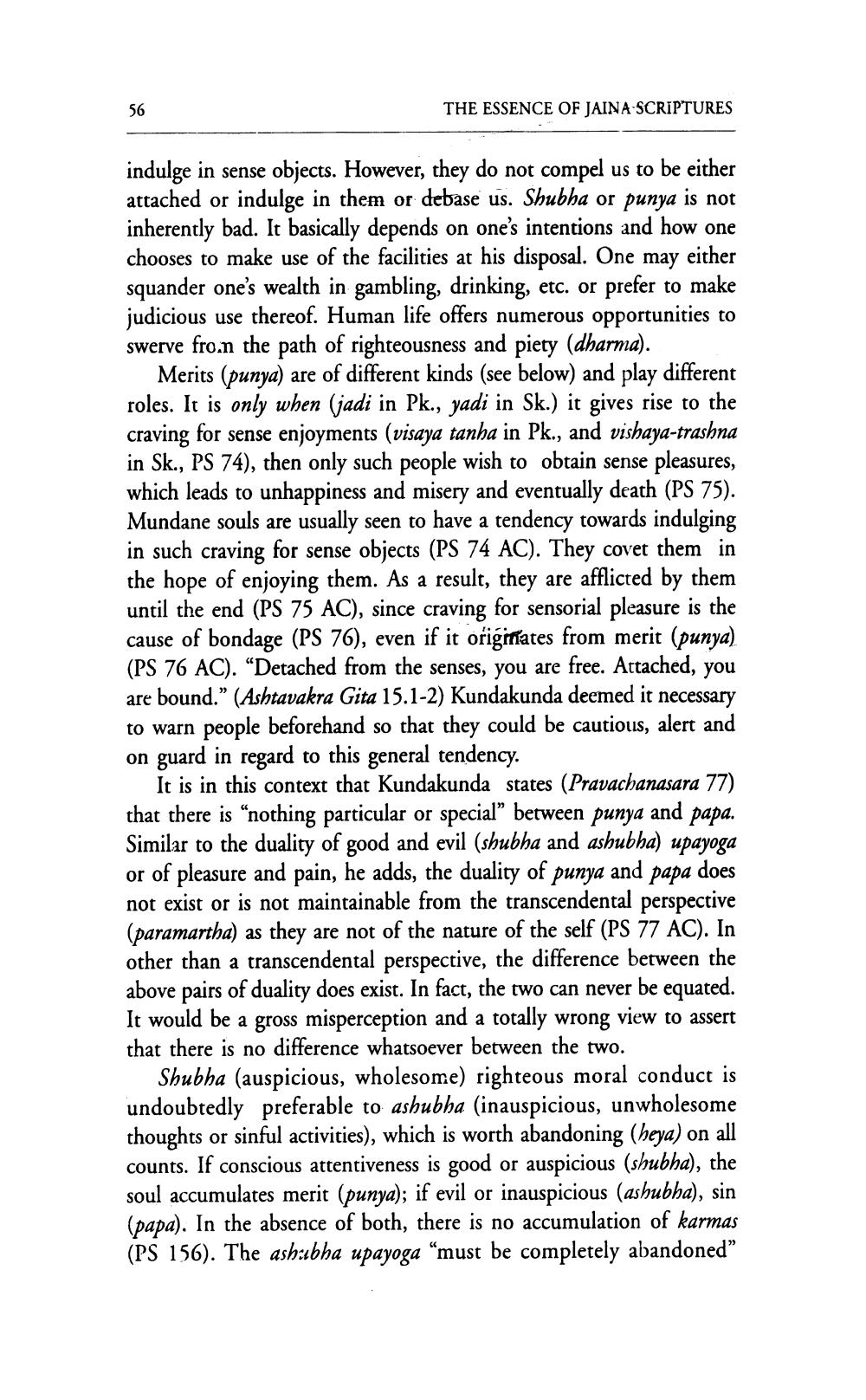________________
G
THE ESSENCE OF JAINA SCRIPTURES
indulge in sense objects. However, they do not compel us to be either attached or indulge in them or debase us. Shubha or punya is not inherently bad. It basically depends on one's intentions and how one chooses to make use of the facilities at his disposal. One may either squander one's wealth in gambling, drinking, etc. or prefer to make judicious use thereof. Human life offers numerous opportunities to swerve from the path of righteousness and piety (dharma).
Merits (punya) are of different kinds (see below) and play different roles. It is only when (jadi in Pk., yadi in Sk.) it gives rise to the craving for sense enjoyments (visaya tanha in Pk., and vishaya-trashna in Sk., PS 74), then only such people wish to obtain sense pleasures, which leads to unhappiness and misery and eventually death (PS 75). Mundane souls are usually seen to have a tendency towards indulging in such craving for sense objects (PS 74 AC). They covet them in the hope of enjoying them. As a result, they are afflicted by them until the end (PS 75 AC), since craving for sensorial pleasure is the cause of bondage (PS 76), even if it originates from merit (punya) (PS 76 AC). “Detached from the senses, you are free. Attached, you are bound.” (Ashtavakra Gita 15.1-2) Kundakunda deemed it necessary to warn people beforehand so that they could be cautious, alert and on guard in regard to this general tendency.
It is in this context that Kundakunda states (Pravachanasara 77) that there is “nothing particular or special” between punya and papa. Similar to the duality of good and evil (shubha and ashubha) upayoga or of pleasure and pain, he adds, the duality of punya and papa does not exist or is not maintainable from the transcendental perspective (paramartha) as they are not of the nature of the self (PS 77 AC). In other than a transcendental perspective, the difference between the above pairs of duality does exist. In fact, the two can never be equated. It would be a gross misperception and a totally wrong view to assert that there is no difference whatsoever between the two.
Shubha (auspicious, wholesome) righteous moral conduct is undoubtedly preferable to ashubha (inauspicious, unwholesome thoughts or sinful activities), which is worth abandoning (heya) on all counts. If conscious attentiveness is good or auspicious (shubha), the soul accumulates merit (punya); if evil or inauspicious (ashubha), sin (papa). In the absence of both, there is no accumulation of karmas (PS 156). The ash:ubha upayoga “must be completely abandoned”




